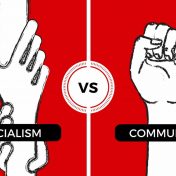The world’s industrialized food system has produced systemic issues within society. Not only do individuals now possess “an unhealthy obsession with healthy eating” known as Orthorexia (Pollan pg. 80), but they also believe that as more items line the shelves of supermarkets, they have more choice in the foods that they can purchase. Modern guides on nutrition have effectively misled… Read more »
In his book, In Defense of Food, Michael Pollen identifies what he deems the “Western Diet” as a primary culprit for a myriad of America’s health concerns. While I can recognize the validity of some of Pollen’s issues with the American diet, grouping all “Western Diets” together is to paint the variety of cultures and diets in the west as… Read more »
In Pollan’s book, In Defense of Food, he elaborates on what he believes humans should eat and discusses why food and eating stand in need of defense. Most importantly he critiques the “reductionist” approach to food, which focuses on various nutrients, rather than the holistic approach. Although his work was published before social media took off, it is still challenging… Read more »
Our food’s tendency to diminish human and environmental health is clearly and evidently tied to the industrialization of its production and the resulting change in the way we view our food: as something to be quantified. Nutritionism plays a significant role in the failing health of our population and a return to the tradition, culture, and joy of eating can… Read more »
During one of the first quiz sections we discussed the question, how has nutritionism impacted the way you eat? To put it shortly, it hasn’t had any real effect on the way I eat. My parents emigrated to the U.S. from South Korea before I was born, thus, I grew up eating traditional Korean meals. Luckily, there was a large… Read more »
If you ask people about their opinion on a type of food, ask them whether they think the food is “good” or “bad”, you would probably get a dozen different answers. Everyone wants to eat healthy, but everyone lives in a different way and have diverse understanding on a “healthy diet”, which lead them to make different food choices! So,… Read more »
Industrialized Food and the Problem of Supermarkets While farmer’s markets and community gardens may be on the rise in U.S. cities, the vast majority of U.S. households still buy their food from chain supermarkets and supercenters, regardless of income level. Supermarkets provide a fast and accessible way to satisfy your hunger – one twenty minute trip can provide everything from… Read more »
(Michael Pollan in Defense of Food) Michael Pollan creates a vibrant critique of the world food system that spans criticisms of inequity in valuation of trading good by countries of the Global North compared to that of the Global south, to analysis of Nutritionism and the intricate and interlocking ways that companies profit off of science, journalism, and the food… Read more »
When scientists tried boldly to maximize the product and nutrient efficiency of our food over a hundred years ago, we succeeded, but along came the consumption of chemicals through pesticides, highly processed foods, and relative biological uniformity in our diet. These characteristics of our diet have in turn given us everything we need to be biologically healthy, except ironically, the… Read more »
While I’d like to say that my minimum wage job provides enough disposable income for my rent, groceries, lifestyle, and savings, it’s still a familiar struggle each month deciding how to allocate my income. Certainly I’m not the only student living in Seattle that feels this monetary pressure, and surely there are people less well off across the country facing… Read more »

